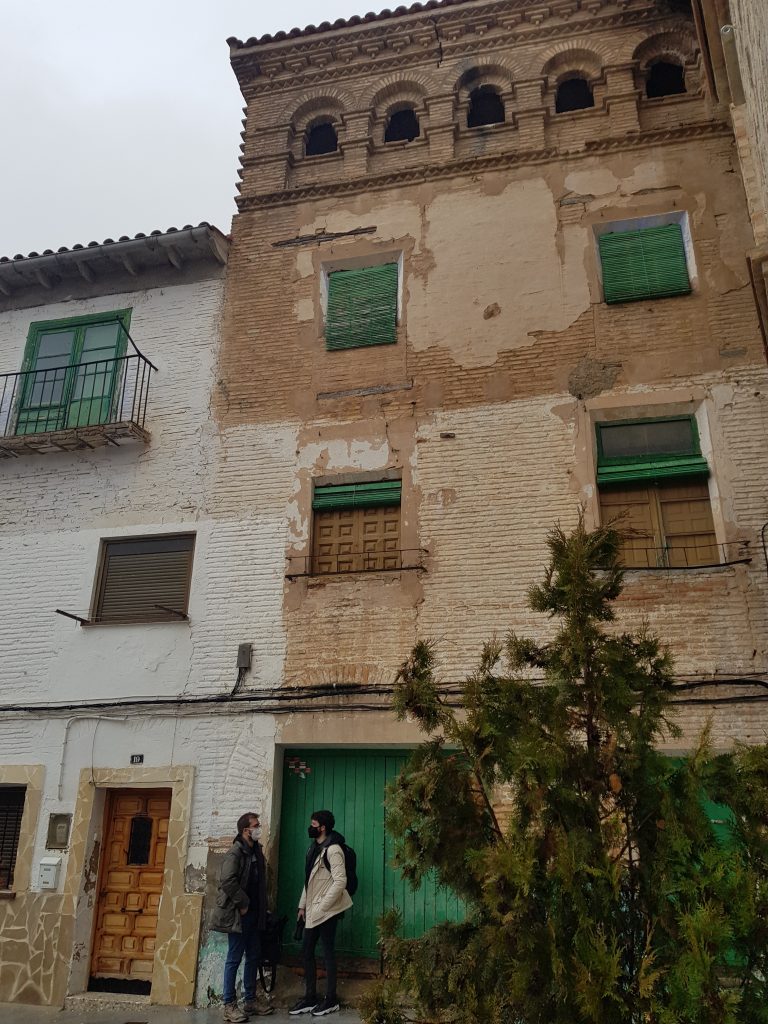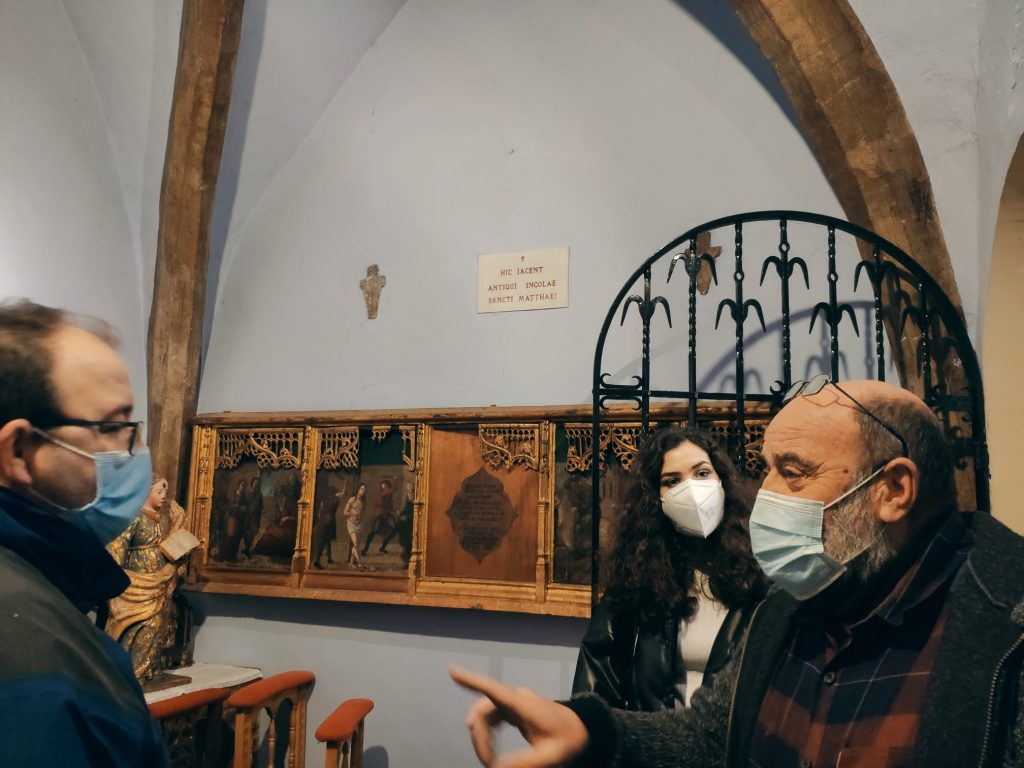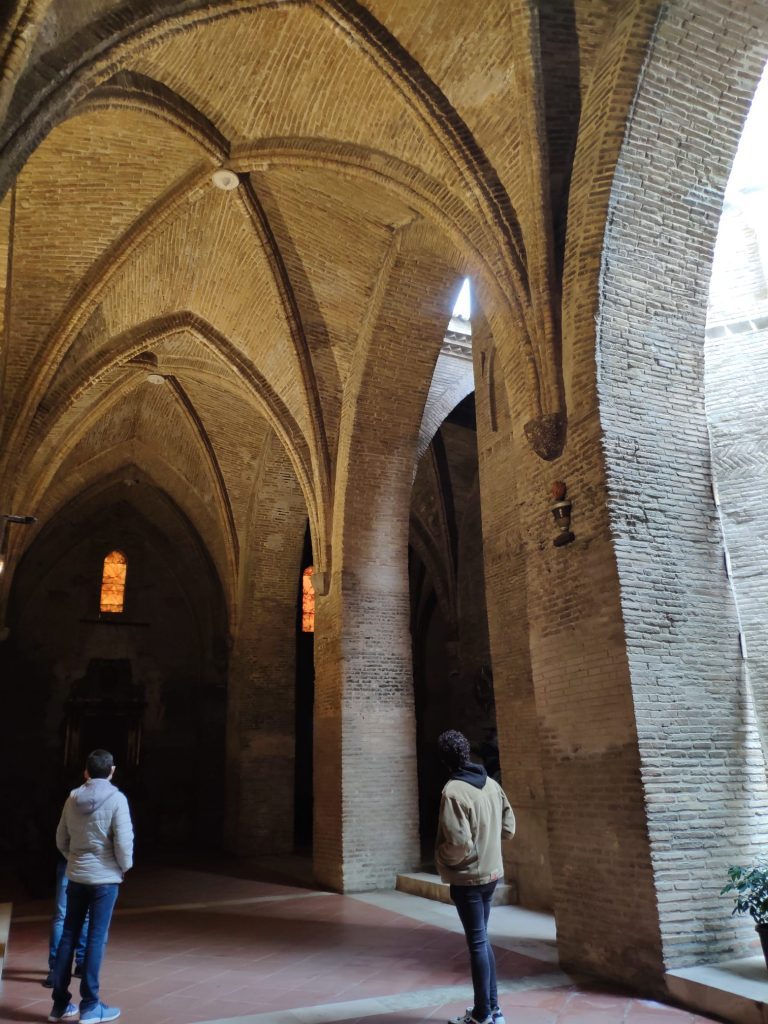At Territorio Mudéjar we make the most of our resources to generate professional fields of excellence, in which each area we develop is specialised and works to find solutions of innovative use for the “heritage space” as a space for professional development and learning.
These days we are finalising the different actions that are part of the practical study for the definition of a specialised professional profile for cultural heritage located in rural territories and that in our case coincides with the work that we actively carry out with the localities that hold the UNESCO World Heritage declaration.
This project, funded by the Ministry of Culture and Sport through its 2019 call of grants for projects for the conservation, protection and dissemination of World Heritage Sites, as well as by the Council of Zaragoza through its direct aid to Territorio Mudéjar, aims to make our entity a benchmark in terms of the quality applied to the development of projects linked to management and accessibility strategies, understanding that the quality and achievement of objectives of our projects must begin by strengthening the skills and abilities of the people who work on them on a daily basis.
In this line, we have developed different actions throughout the year 2020 through which we are working on the creation of synergies with entities of recognised prestige in our territory such as the Tarazona Monumental Foundation, the Santa Mª de Albarracín Foundation, the Association of Municipalities of the Camino de Santiago or the Sobrarbe-Pyrenees Geopark, among others.
In addition, we are in continuous contact with national and international entities that work to ensure that professionalization is the key to the future of our heritage as an economic agent and from different points of view, such as Icomos España or Aproha.
The richest and most stimulating actions are found in the incorporation of students, recent graduates and emerging professionals in the different projects that we carry out through the University of Zaragoza, for the Challenge Programme, for entities such as Cepyme that train for professionalization, or through the introduction of students in training period for the development of their Master’s or Bachelor’s Degree Final Project.
For this reason, students of Art History, History and other humanistic fields are training in Territorio Mudéjar to be able to build a learning process that takes into account the contexts: Mudejar art, Aragonese art and the general context, because no art is free of influences.
As an example of some of the initiatives we are working on:
-We have been in San Mateo de Gállego making a technical visit so that Sarai Salvo -student of the #ChallengeProgramme2020- gets to know the town and can start working on her Master’s Degree Final Project on the parish museum of San Mateo de Gállego, using the knowledge learned in the creation of focal points of heritage and cultural action for the town.During the visit we also visited the Mudejar pottery workshop Siglo XXI of Fernando Malo, a ceramics workshop specialising in the reproduction of Mudejar tiles for restorations, which will form an active part of our student’s project.
-We have also done technical visits to Magallón (town council) and Tarazona (Tarazona Monumental Foundation) with Derry Holgado and Alfredo Notivol, as part of the internships they are doing through the programme for recent graduates in the first case and through CEPYME in the second.
-With Derry Holgado we visited the Tarazona Monumental Foundation, the Santa María de Albarracín Foundation, the UNESCO Sobrarbe-Pyrenees World Geopark and the church of San Pablo in Zaragoza, one of the buildings declared UNESCO Mudejar World Heritage.
-Eugenia Gallego, another of our students, is working on her Final Master’s Degree Project on the management plan for towers in Villarreal de Huerva, Mainar and Romanos.
-María Foradada is studying different options within Territorio Mudéjar that allow her to develop her Bachelor’s Degree Final Project and finish her degree studies with a clear focus on Mudejar heritage and its practical application in rural areas.
With this project we contribute to training professionals with specific skills through the real application of the contents of the training programmes, who know how to detect what is essential in order for a project to be carried out and have a chance of success.
Likewise, with this work we are making progress in the project to define a professional profile for the management of historical-artistic heritage located in rural areas, financed by the Ministry of Culture and Sport and by the Council of Zaragoza through its direct aid to our organisation.










